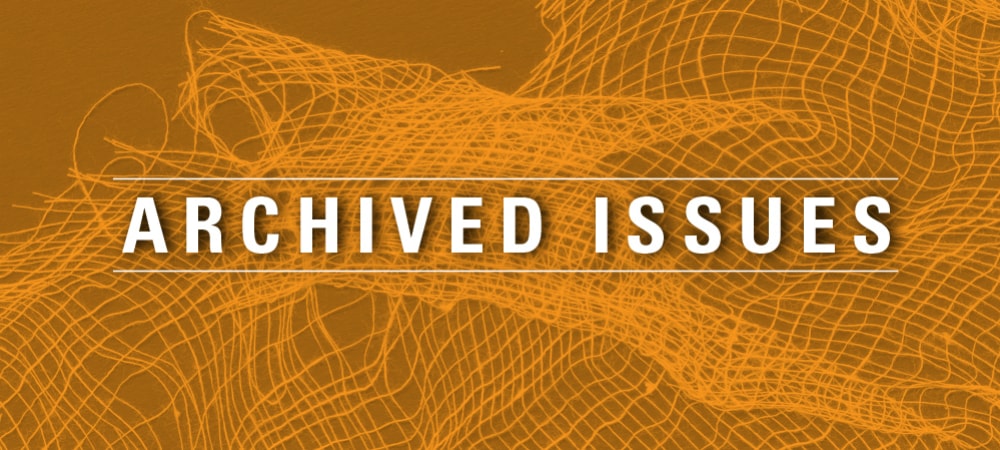Since 1998, Perspectivas has offered the Latino/a theological community a space for the innovative contributions of Latino/a scholars in theology and religion. It serves as a critical resource to stimulate further dialogue and research in theological and religious education. A printed peer-reviewed journal through 2009, with this Spring 2016 issue HTI is pleased to move Perspectivas to an online (and bilingual!) home. We expect that this online venue is what our readership has been asking and waiting for, and it will continue to offer a channel to showcase scholarship that is much needed in today’s American Academy and beyond.
Since our last issue our community has said goodbye to exceptional scholars and dear friends – Alejandro García-Rivera (1951 – 2010), Ada Maria Isasi-Diaz (1943 – 2012), Rubem Alves (1933 – 2014), and Otto Maduro (1945 – 2013). As we move forward it is our hope that their lives and scholarship will not be forgotten which is why we are pleased that this issue includes several articles that engage some of their work and others that serve as tributes that remind us of their impact not only as scholars, but also as beloved friends. It is our hope that our community continue to remember them in forthcoming issues.
In October of 2014, Princeton Theological Seminary held its annual Herencia Lectures in celebration of Hispanic Heritage Month. On that occasion, Leopoldo Cervantes-Ortiz delivered his paper, “A Theology of Human Joy: The Liberating-Poetic-Ludic Theology of Rubem Alves,” tracing the history and impact of the late Brazilian poet, author, theologian, and one of the founders of liberation theology in its Protestant Latin American embodiment. Cervantes-Ortiz traces Alves’s trajectory from doctoral student in theology under M. Richard Shaull to his transition to theopoetics which catapulted him to become one of the greatest literary writers of Latin America. We are pleased to publish this important work (available in both Spanish and English) as part of this inaugural online issue.
As a response to Cervantes-Ortiz, Raimundo Barreto picks up Alves’s intellectual trajectory highlighting the theme of exile as a constant presence in much of Alves’s work. Barreto’s reading of Alves in, “Rubem Alves and the Kaki Tree: the trajectory of an exile thinker,” contributes a fresh perspective to the notable scholar’s prolific career as having deep roots in his navigation of space and being between the American academy and the Latin American people he deeply loved.
Engaging the work of Ada María Isasi-Díaz in, “Embodied Love: Explorations on the imago Dei in the Caribbean Latina Theology of Ada María Isasi-Díaz,” Elaine Padilla articulates a thoughtful witness to how Isasi-Diaz’s concept of ‘fully human’ raises constructive challenges to classical Christian theological explorations of the imago Dei. In memory of her former graduate professor, Padilla points readers to an underexplored aspect of Isasi-Diaz’s work (alongside other Caribbean Latina theologians) and maps a way forward for feminist work on bodies and embodied love as our ability to “image God as God images us.”[1]
In tribute to late philosopher and sociologist of religion, Otto Maduro, Nestor Medina and Matilde Moros both offer powerful testimonies of the prodigious and beloved scholar, who was professor of world Christianity and Latin American Christianity at Drew University’s Theological School and also served as the 2012 president of the American Academy of Religion (AAR). In, “Entre (Otros) Conocimientos and the Struggle for Liberation: Remembering the Legacy of Otto Maduro (1945-2013),” Medina focuses on Maduro’s vocational versatility and his unique ability to cross not only disciplinary boundaries in the academy but also denominational boundaries within the church. Moros highlights the themes of religion as the potential locus of both liberation and oppression to be found in Maduro’s work in, “Otto Maduro: Maestro de cómo ser amigo.” Calling Maduro’s work on religion and Marxism from a Latin American perspective, ‘timely,’ Moros demonstrates that among his many strengths as a philosopher and scholar, Maduro’s shining attribute was his ability to stay with the pulse of the people, lands, and movements he studied.
In the same spirit of lifting up voices still seldom heard in the academy, church, and society at-large, Xochitl Alvizo’s, “The Listening Guide: A Practical Tool for Listening Deeply to the Body of Christ,” offers an important practical tool for critical theological reflection on the church. Of interest to both academics and ministerial leaders alike, Alvizo outlines what her doctoral research on Emerging Church discovered and how ‘deep listening’ can serve as a pathway forward in the corrective journey toward a theology that includes all members of the body of Christ.
As you encounter the work of these scholars, and the scholars that they engage, we hope that you will become more aware of, and employ, the rich resources available in Latino and Latin American scholarship in your own work in the academy or the church. As, locally, our nation continues to change demographically and, globally, the church continues to grow in the Southern Continents it is these voices that are vital, and can no longer remain merely ancillary, to a complete theological witness for the church and the world.
Grace Vargas
Associate Editor



